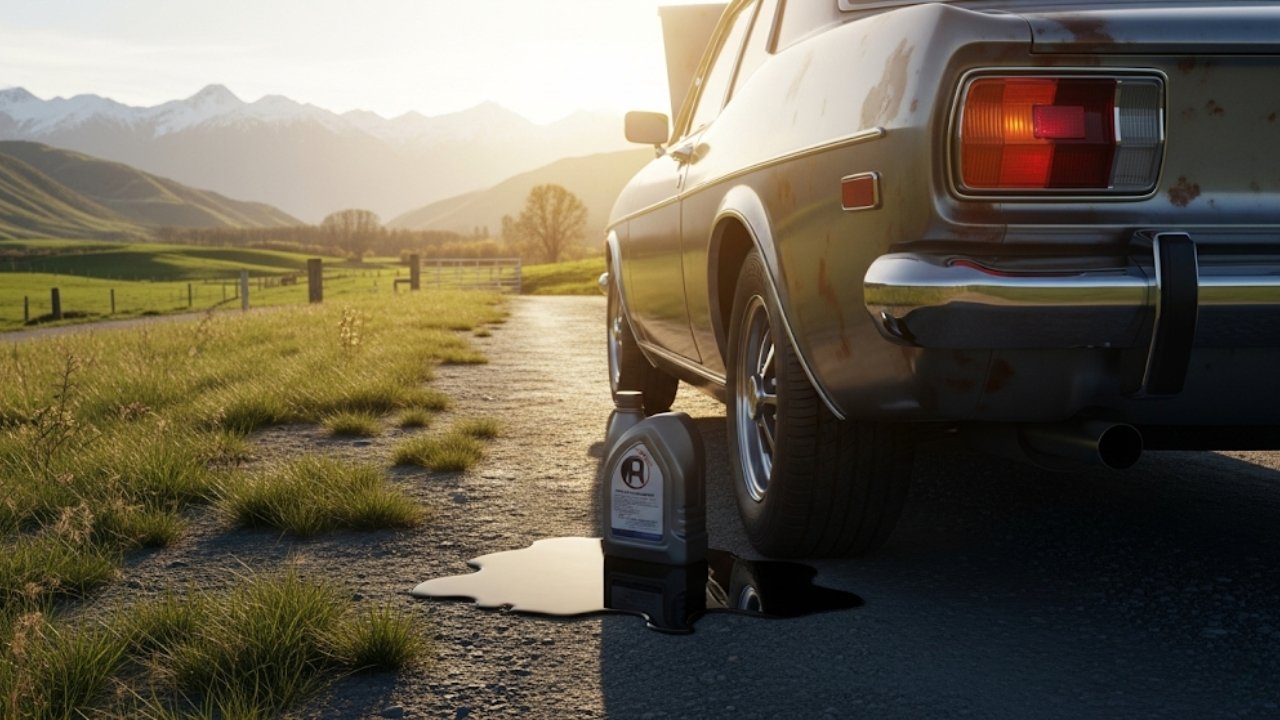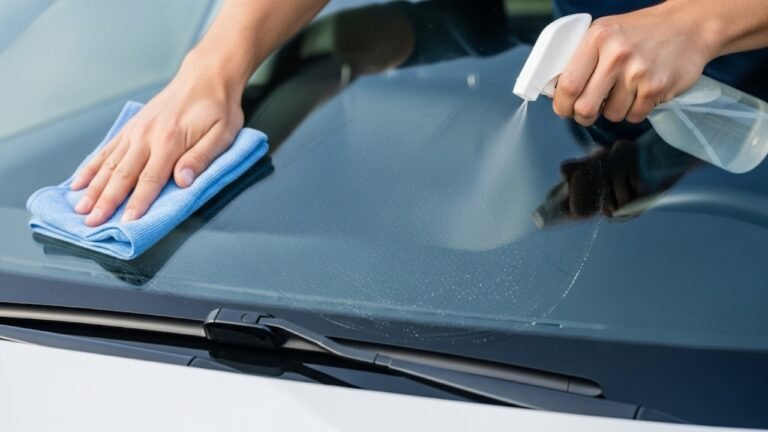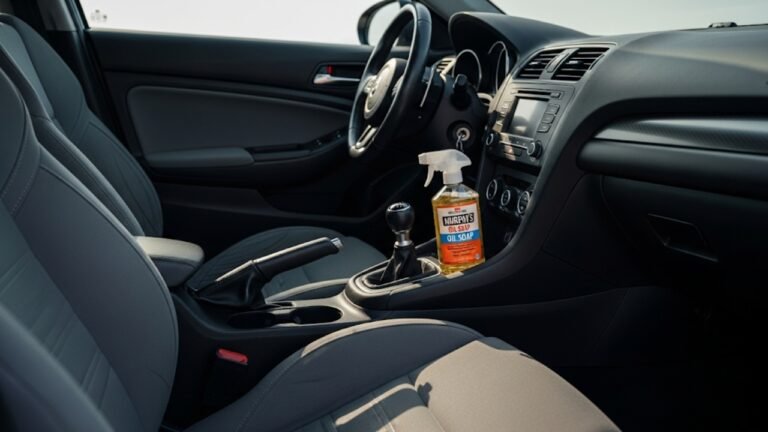What Oil for My Car NZ: A Kiwi’s Guide

Ever popped the hood of your car, stared at the dipstick, and thought, “Hmm, what oil for my car NZ?” You’re not alone. Choosing the right engine oil can feel like trying to pick the right wine for dinner – too many options, odd labels, and everyone’s got an opinion.
As a Kiwi who grew up helping my dad service our Holden Commodore in the driveway, I’ve seen firsthand how engine oil can make or break your car’s performance. From road trips across the South Island to morning school runs in Auckland traffic, the right oil keeps your car purring like a well-fed cat.
In this guide, I’ll break things down simply. We’ll explore what engine oil does, how to choose the right one for New Zealand’s unique driving conditions, and which oils are best for your car. Whether you drive a Mazda Demio, Toyota Hilux, or a classic Subaru Outback, this article is for you.
Why Engine Oil Matters More Than You Think

Use the wrong oil, and your engine could suffer from:
Premature wear and tear
Poor fuel economy
Sluggish performance
Overheating
In New Zealand, with its mix of humid coastal towns, alpine highways, and unsealed country roads, your choice of engine oil is even more critical. Kiwi drivers need oil that stands up to temperature swings, stop-start traffic, and weekend getaways on winding roads.
Choosing the right engine oil in NZ isn’t about guessing. It’s about understanding your car, the climate, and the oil types available.
️ Types of Engine Oil: Let’s Clear the Confusion
So, what are your options when it comes to what oil for my car NZ? You’ll see labels like 10W-40, full synthetic, or API SN. Sounds technical? Let’s simplify.
Main Types of Engine Oil:
| Oil Type | Description | Ideal For |
|---|---|---|
| Mineral Oil | Basic, older formula. Cheap but needs frequent changes. | Older vehicles or low-performance engines. |
| Semi-Synthetic | Mix of synthetic and mineral oil. Better protection. | Moderate performance cars. |
| Full Synthetic | Engineered for performance and longevity. Expensive, but worth it. | Modern vehicles, turbo engines, or long trips. |
Viscosity Grades (e.g., 5W-30):
The first number (5W) refers to how the oil flows in cold weather.
The second number (30) shows how it performs at high temperatures.
For New Zealand’s climate, 5W-30 or 10W-40 are common, but always check your car owner’s manual for the recommended grade.
Pro Tip: If you’re unsure, mechanics at NZAA or Repco can help identify the correct oil. Some online tools even let you input your car’s rego and get instant recommendations.
️ How New Zealand’s Climate Affects Your Oil Choice
Unlike other countries with extreme seasons, New Zealand has a relatively mild climate, but that doesn’t mean one-size-fits-all.
Consider These Kiwi Conditions:
North Island cities (Auckland, Wellington): Lots of stop-start driving. Choose oils with good cold-start protection (e.g., 5W-30 synthetic).
South Island alpine areas: Cold winters = thicker oil needed. Go for multi-grade oils like 10W-40 or synthetic blends.
Rural NZ or tradie vehicles: Frequent heavy loads and gravel roads. High-performance or full synthetic oil is a must.
I once made the mistake of using mineral oil in my Toyota Estima before heading to Queenstown in winter. The engine groaned louder than I did in the freezing cold. Lesson learned: get the right oil for the job.
Decoding the Labels: What to Look for on the Bottle
Walking into a Supercheap Auto store or checking online, you’ll be bombarded by terms like API SN, ACEA A3/B4, or Dexos1 Gen2. Don’t stress. Here’s what matters.
Key Engine Oil Terms:
API Rating: American standard. “SN” or “SP” is good for petrol cars. “CK-4” is good for diesel.
ACEA Rating: European standard. Good if you drive European cars (BMW, Audi).
OEM Approvals: Some oils are approved by brands like Ford, Toyota, or VW. Use these if your car needs them.
What You Should Always Check:
Oil viscosity grade (e.g., 5W-30)
Car type (Petrol or Diesel)
Driving style (City, highway, towing, racing)
Here’s a quick checklist to remember:
Engine Oil Buying Checklist:
✅ Is it the right viscosity grade?
✅ Is it synthetic or mineral, as needed?
✅ Does it match API/ACEA rating for my car?
✅ Do I need special OEM approvals?
✅ Am I getting it from a trusted NZ retailer?
Synthetic vs Mineral: Which One’s Best for You?
The eternal question: full synthetic or mineral? Here’s my take based on years of driving up and down NZ.
Mineral Oil
Cheaper
Works for old cars or light use
Needs frequent changes
Full Synthetic
Costs more upfront
Lasts longer
Great for modern engines, turbochargers, and long-distance driving
When I switched my 2010 Subaru Forester to full synthetic, the engine ran smoother, especially on steep roads like the Crown Range. Plus, I got better mileage and didn’t need to change it every 5,000 km.
If you want to treat your car right and save money in the long run, go synthetic—especially in the New Zealand driving landscape.
Real-Life Scenarios: What Oil for My Car NZ?
Let’s get specific. Here’s how your lifestyle can shape your oil needs.
1. City Driver (Auckland/Wellington):
Lots of idling, short trips, engine starts.
Go for: 5W-30 full synthetic with API SP.
2. Rural Driver (Waikato, Southland):
Dusty roads, heavy loads, less frequent servicing.
Go for: 10W-40 or 15W-40 semi-synthetic or synthetic.
3. Tradie Ute (Hilux/Navara):
Towing, off-roading, heavy duty.
Go for: 15W-40 diesel-rated oil with API CK-4.
4. Daily Family Car (Corolla/Outlander):
Balanced driving, wants low maintenance.
Go for: 5W-30 synthetic—best all-rounder.
Common Mistakes Kiwis Make When Choosing Oil
It’s easy to mess this up—don’t feel bad if you’ve been there.
Here Are the Top Blunders:
❌ Buying the cheapest oil on special
❌ Ignoring the viscosity grade
❌ Skipping the car manual
❌ Assuming “all 5W-30 oils are the same”
❌ Not checking if it’s for petrol or diesel
I once used diesel-rated oil in my old Honda Civic. Let’s just say the engine wasn’t impressed. It ran rough and started burning oil. Lesson learned.
Where to Buy Engine Oil in NZ
New Zealand has some great local suppliers who stock quality oils from brands like Castrol, Penrite, Valvoline, Mobil, and Gulf Western.
Trusted Retailers:
Repco
Supercheap Auto
New Zealand Auto Parts
The Warehouse (basic range)
Online at Mighty Ape or Oil Changers
If you’re still unsure about what oil for my car NZ, ask the staff. Kiwis are friendly, and they’ll often go out of their way to help you out—even offer tips from their own experiences.
Signs It’s Time for an Oil Change in NZ
So, how do you know your car’s oil is waving a white flag? Luckily, your engine usually drops a few hints—you just need to listen.
Look Out for These Signs:
Check Engine or Oil Light: Obvious but important. Don’t ignore it!
Dirty, Dark Oil: Pull out your dipstick. If the oil’s black and sludgy, it’s past its prime.
Engine Noise or Knocking: Low oil = high friction. If your engine sounds like a drummer with no rhythm, change the oil.
Exhaust Smoke: Not normal. Could mean oil is burning—likely overdue or wrong type.
Poor Performance: Sluggish acceleration or increased fuel use? Dirty oil might be the culprit.
In New Zealand, it’s common to forget about oil changes until the next WOF (Warrant of Fitness). But waiting that long can reduce your engine’s life.
Pro Tip: Set a reminder on your phone for every 6 months or 5,000–10,000 km, depending on your oil type and driving style.
DIY Oil Change: The Kiwi Way
Changing your own oil in NZ isn’t just for car geeks. With the right tools, it’s actually a fun and satisfying Saturday job.
️ What You’ll Need:
Jack and jack stands or ramps
Oil drain pan
Funnel
Wrench/socket set
Rags and gloves
Your car’s correct engine oil (refer back to our table)
New oil filter (usually recommended)
Simple Steps:
Warm Up the Engine: 5 mins to get the oil flowing.
Lift the Car: Use stands or ramps.
Drain the Old Oil: Remove drain plug and let it flow into the pan.
Replace Filter: Unscrew the old one. Lube the new filter’s gasket with a bit of oil and screw it in.
Add New Oil: Use the funnel, pour it in, and check the dipstick.
Start the Engine: Let it run a minute, check for leaks.
Dispose of Oil Properly: Drop it off at Supercheap Auto or Repco. It’s illegal to dump it.
There’s something empowering about doing your own oil change. Plus, it’s cheaper and a great bonding activity if you have curious kids or a car-loving partner.
Top Engine Oil Brands Trusted in NZ
When it comes to what oil for my car NZ, brand matters. Not all oils are created equal. Some are better engineered, have more approvals, and work well with Kiwi conditions.
Popular & Trusted Engine Oil Brands:
| Brand | Known For | Why Kiwis Love It |
|---|---|---|
| Castrol | Premium quality, trusted globally | Long history, widely stocked |
| Penrite | Aussie brand, suits ANZ climates | Affordable and reliable |
| Mobil 1 | High-end full synthetics | Used in performance vehicles |
| Valvoline | Balanced performance and cost | Available across NZ stores |
| Gulf Western | Budget-friendly but effective | Great for older vehicles or utes |
| Shell Helix | OEM approved by major brands | Great for new cars and hybrids |
You’ll find these at local shops like Repco, Supercheap, or even Pak’nSave’s automotive aisle. When in doubt, go for one with OEM approvals for your car brand.
Eco-Friendly Oil Options for the Conscious Driver
You care about your car—but what about the planet?
Eco-conscious driving is growing in NZ. Many synthetic oils are now low-SAPS (sulphated ash, phosphorus, sulphur), which makes them cleaner for engines and emissions systems.
Some oils also come in recyclable packaging or offer re-refined base oils, which reduce waste and carbon impact.
Look for:
API SN PLUS or SP (low emission standards)
ACEA C2/C3 ratings
Brands like Castrol EDGE Bio-Synthetic or Penrite Enviro+
If you’re driving a hybrid or electric-petrol combo, your oil needs may differ. Hybrids often benefit from low-viscosity full synthetics, such as 0W-20 or 5W-30.
Recap: How to Choose the Right Oil for Your Car in NZ
Let’s sum everything up in one easy-to-digest list.
✅ What to Remember When Picking Engine Oil:
Check your car manual first.
Use the right viscosity for NZ’s climate.
Consider full synthetic for performance or long trips.
Match the API or ACEA rating.
Don’t mix petrol and diesel oils.
Buy from trusted NZ retailers.
Change oil every 6–12 months or 5,000–10,000 km.
Knowing what oil for my car NZ is all about tuning into your vehicle and your environment. And hey, if you’re unsure—there’s no shame in asking your mechanic, mum, or even the neighbour who spends weekends polishing his WRX.
❓FAQs About What Oil for My Car NZ
1. How often should I change my car oil in New Zealand?
Most Kiwis change their oil every 6–12 months or 5,000–10,000 km, depending on the oil type and driving habits. Full synthetic lasts longer.
2. Can I mix different engine oils?
It’s best not to. Mixing oils with different base types or viscosities can reduce performance. If you’re in an emergency, use similar-grade oil and do a full change soon.
3. Do I need different oil in summer vs. winter in NZ?
Not usually. NZ’s moderate climate means multi-grade oils like 5W-30 or 10W-40 work all year round.
4. What oil should I use for my diesel ute in NZ?
Use a diesel-rated oil with API CK-4 or CJ-4, preferably 15W-40. Brands like Penrite and Castrol have great diesel blends.
5. What’s the difference between 5W-30 and 10W-40?
5W-30 flows better in cold conditions. 10W-40 is thicker and better for higher temperatures or older engines.
6. Is full synthetic oil worth the money?
Yes. It protects better, lasts longer, and improves fuel efficiency. Ideal for modern engines or long-distance driving.
7. Can I recycle old engine oil in NZ?
Absolutely. Take it to Repco, Supercheap Auto, or your local council’s recycling center. Never dump it.
8. Does engine oil affect my fuel economy?
Yes! Using the correct oil reduces friction, which means better fuel efficiency and a smoother ride.
Final Thoughts: Take Care of Your Engine, and It’ll Take Care of You
Owning a car in New Zealand is a journey filled with coastlines, country roads, and a lot of weather changes. Whether you’re dodging Auckland traffic or cruising along the Coromandel, your car’s health starts with the right oil.
So next time you wonder, “what oil for my car NZ?”, remember it’s not just a mechanical choice—it’s about trust, performance, and peace of mind. Take five minutes, check that oil level, read your manual, and choose what your car needs.
You don’t need to be a mechanic. You just need to care enough to listen to your engine—because when it runs well, so does your life.






